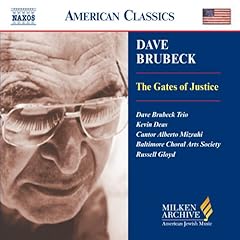 Dr. Martin Luther King day is a rather singularly American holiday. It captures a pivotal moment in our collectively national history, reminding us of who we were and who we are becoming. It also challenges us individually, both to live up to the ideals of our nation (all men are created equal) but to be ready to work hard as individuals to push our nation in the right direction. The national ethic on the shoulders of hardworking individuals. So American and such a good yearly reminder for us individuals. Even if our shoulders are neither as strong or as resolute as those of Martin Luther King, we have no excuse for not trying.
Dr. Martin Luther King day is a rather singularly American holiday. It captures a pivotal moment in our collectively national history, reminding us of who we were and who we are becoming. It also challenges us individually, both to live up to the ideals of our nation (all men are created equal) but to be ready to work hard as individuals to push our nation in the right direction. The national ethic on the shoulders of hardworking individuals. So American and such a good yearly reminder for us individuals. Even if our shoulders are neither as strong or as resolute as those of Martin Luther King, we have no excuse for not trying.I spent yesterday at work, not at a Martin Luther King Day celebration, though I've been to many in the past. I did spend a good chunk of it listening to Dave Brubeck's "The Gates of Justice." Here's an excerpt from its liner notes (courtesy of the Jewish Virtual Library).

"Henry David Thoreau once said, “When I hear music, I fear no danger. I am invulnerable. I see no foe. I am related to the earliest times, and to the latest.” No album comes closer to fulfilling this statement then Dave Brubeck's The Gates of Justice, a jazz-tinged cantata that combines wisdom from the Torah with speeches by Dr. Martin Luther King, Jr. and the writings of Hillel.I think that's right, in the sense that it doesn't use motifs from any recognizable Jewish liturgical or secular source. But I've always loved this piece and feel strongly Brubeck's impulse and it resonates for me as being deeply Jewish. But I want to be clear. While there were many Jew deeply committed and involved in the Civil Rights movement (including being murdered for their participation), I have no interest in appropriating Martin Luther King Day as a Jewish holiday or making a big "us too" claim. The only "us" I'm interested is the American us and how Martin Luther King Day motivates the American us to better live up to King's dream and our national ideals. I think that Brubeck's piece capture both beautifully.Written in the late 1960s at the end of the civil rights movement, Gates was Brubeck's musical attempt at forging a common bond between the American Jewish and black communities. In a time of national polarization over the Vietnam War, and the fight for equal rights for all Americans, the Union of American Hebrew Congregations and the College Conservatory of Music at the University of Cincinnati invited Brubeck to compose a piece that would awaken the spiritual connections between the two communities. According to the composer, “They were both enslaved, uprooted from their homelands and wandered in the diaspora.” Brubeck also noted that the historical narratives of both peoples have many parallels. Thoreau would be pleased to know that Brubeck masterfully combined elements from the “earliest and latest” times to create this powerful composition.
This is not a “Jewish” sounding album, but its message is undoubtedly a Jewish value: the brotherhood of man."
To listen to excerpts of this amazing piece of music hop over to Amazon.
Quick note: The Martin Luther King photo above comes from the Life Magazine archive hosted by Google. It was take in Washington DC in 1963 by photographer Francis Miller as Dr. King addressed a crowd during a civil rights rally.








No comments:
Post a Comment